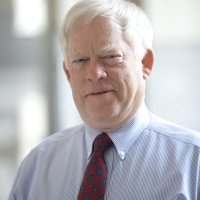The Ninth Annual Nancy Bernkopf Tucker Memorial Lecture on U.S.-East Asia Relations
Submit a question
Strait to the Point: Current Challenges for Taiwan and US-Taiwan Relations
Taiwan’s always-difficult quest for status and security has reached a new inflection point, as have US-Taiwan relations. China launched military exercises following US House Speaker Nancy Pelosi’s visit to Taiwan—by some assessments the “fourth cross-Strait crisis” since the establishment of the People’s Republic of China. In recent years, US-China relations have deteriorated—on some accounts, verging on a new Cold War. Congress has passed an unprecedented raft of “pro-Taiwan” legislation since 2016. President Biden and his administration have taken positions that arguably diverge significantly from traditional US formulations of “strategic ambiguity.” Russia’s invasion of Ukraine, as well as US and PRC assessments of each other as security threats, have raised anew the specter of aggression by—and conflict among—great powers. Concerns are rising about an increasingly powerful and assertive China’s possible impatience with a lack of progress on reunification of Taiwan. Taiwan’s impending presidential transition is creating uncertainties not seen in nearly a generation.
Amid these developments, and in the context of international institutional and normative orders that are under stress and fracturing, will the multifaceted strategies that Taiwan has pursued successfully to secure international space and support still work? How will they need to adapt to the challenges of our moment? What are the implications for US policy and US-Taiwan relations?
Jacques DeLisle
Jacques deLisle is the Stephen A. Cozen Professor of Law, Professor of Political Science, and Director of the Center for the Study of Contemporary China at the University of Pennsylvania, and Director of the Asia Program at the Foreign Policy Research Institute. His writings, on China’s engagement with the international order, Taiwan’s international status and cross-Strait relations, Hong Kong’s trajectory under Chinese rule, and US-China relations have appeared in Journal of Contemporary China, Asia Policy, China Review, Orbis, Administrative Law Review and other academic and policy journals and edited volumes. He is the co-editor of, and contributor to, The Party Leads All: The Role of the Chinese Communist Party in China’s Politics, Governance, Society, Economy, and External Relations (2022), After Engagement: Dilemmas in U.S.-China Security Relations (2021), Taiwan in the Era of Tsai Ing-wen (2021), To Get Rich is Glorious: Challenges Facing China’s Economic Reform and Opening at Forty (2019); China's Global Engagement: Cooperation, Competition, and Influence in the 21st Century (2017); The Internet, Social Media, and a Changing China (2016); Political Changes in Taiwan under Ma Ying-jeou (2014), and China’s Challenges (2014).
Previous Lectures:
How, and Why, China-U.S. Relations have Worsened Since 2012? with Prof. Wang Jisi (2022)
Sino-American Relations and International Law - Lessons for Today with Jerome Cohen (2019)
Sustaining Taiwan through the 21st Century with Shelley Rigger (2018)
America First: Provincialism and Internationalism in U.S. Foreign Relations with Bruce Cummings (2017)
Present Pasts: The Politics of Memory in East Asia with Carol Gluck (2016)
The United States and China: Same Bed, Different Dreams, Shared Destiny with Thomas Fingar (2015)
Tough Calls: Difficult Assessments and Hard Choices in U.S. Policy Toward China with Harry Harding (2014)
Sino-American Relations: Amour or Les Miserables? with Ambassador Winston Lord (2013)
Introduction

Former Director, Asia Program, Woodrow Wilson Center; Former Public Policy Fellow, Woodrow Wilson Center
Keynote Speaker

Moderator

Hosted By

Indo-Pacific Program
The Indo-Pacific Program promotes policy debate and intellectual discussions on US interests in the Asia-Pacific as well as political, economic, security, and social issues relating to the world’s most populous and economically dynamic region. Read more
